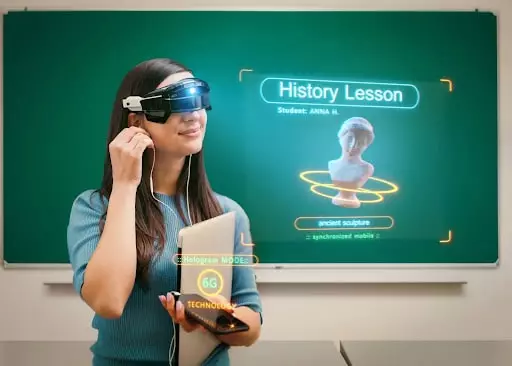In the midst of a struggling education industry magnified by the disruptions caused by the Covid-19 pandemic, a groundbreaking movement known as decentralized education, or DeEd, is transforming the way we approach learning. By harnessing the power of decentralized technologies, DeEd revolutionizes the educational landscape by eliminating geographical and institutional barriers, offering equal access to educational resources for learners, teachers, and institutions across the globe. This article explores the urgent need for change in the education system, the key principles of DeEd, and the transformative projects paving the way for a more inclusive and personalized approach to learning.
The Covid-19 crisis and subsequent school closures have underscored the vulnerabilities of the traditional education system. According to the World Bank, the current generation of students may face a staggering $21 trillion in lost salaries due to the disruptions caused by the pandemic. Moreover, the education industry’s decision-making process is hindered by financial and political factors, highlighting the need for a more efficient and transparent approach. The conventional school system, rooted in its 19th-century origins of maintaining social order and conformity, is no longer sufficient for the demands of the modern world.
At the core of DeEd lies the elimination of physical and geographical barriers to learning. As long as individuals have access to the internet, they can engage in the educational opportunities they desire. Unlike traditional classrooms, DeEd empowers learners to customize and personalize their curriculum based on their unique needs and interests. Gone are the days of overcrowded classrooms with a one-size-fits-all approach. Instead, learners can choose their subjects, modules, and techniques, creating a more engaging and tailored learning experience.
DeEd harnesses the power of modern technologies to create innovative learning programs that differ from the traditional pen-and-paper approach. With the use of interactive, gamified, and peer-to-peer learning experiences, educational curriculums are being transformed. Research has shown the effectiveness of learning through play, a technique gaining recognition across various industries. The changing landscape of learning is driven by factors such as technological advancements, social shifts, and economic changes, leading to a more accessible and equitable educational system.
The rise of blockchain technology and artificial intelligence has revolutionized the creation and delivery of educational programs. These technologies offer full transparency, security, and accessibility, enabling the construction of tailored learning experiences. In an evolving job market requiring continuous learning and adaptability, the demand for personalized education has never been higher. Additionally, the ubiquity of social media and online interactivity has facilitated the integration of communicative tools into the learning process, further propelling the shift towards DeEd.
Numerous projects within the DeEd sphere are driving the transformation of the education landscape. TinyTap, an edtech project acquired by Animoca Brands, provides a vast library of over 250,000 educational games in multiple languages. Recently, TinyTap entered the Web3 space with its innovative ‘Publisher NFTs,’ allowing educators to generate passive income from their courses. Hooked Protocol, on the other hand, combines gamification with monetary rewards through interactive dApps, incentivizing users to complete quizzes by offering cryptocurrency tokens. Open Campus, a community-driven Web3 protocol, enables teachers to monetize their efforts by digitizing educational materials and fostering ongoing compensation.
While DeEd presents a myriad of opportunities, several challenges must be addressed for its widespread adoption. Bridging the digital divide, ensuring the quality and consistency of education, and facilitating user onboarding to new technologies are all critical aspects. However, given the immense potential to enhance accessibility, equity, and inclusivity in education, DeEd demands the support and involvement of both institutions and individuals alike to secure a promising future for learning.
Decentralized education offers a revolutionary solution to the limitations of traditional education systems. By leveraging decentralized technologies, DeEd erases geographical and institutional boundaries, empowering learners with customized and personalized learning experiences. Blockchain and AI provide the tools necessary for creating transparent and adaptable educational programs. Through transformative projects, the DeEd movement is reshaping how we approach learning, ensuring a more accessible, equitable, and fruitful future for education. As we navigate the challenges and embrace the potential of DeEd, it is crucial to seize this opportunity and reshape the educational landscape for generations to come.


Leave a Reply